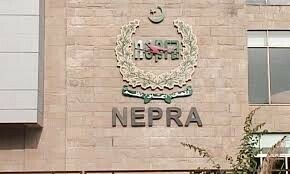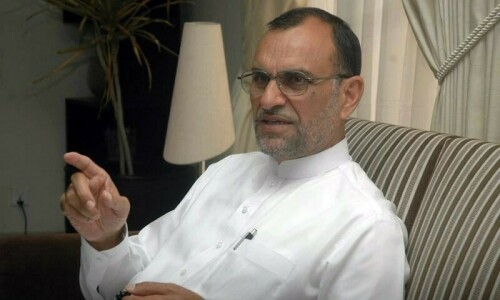
NEW DELHI: India and Afghanistan signed a security pact here on Tuesday after assessments by both that they were targets of the ubiquitous Haqqani group of the Taliban network increasingly accused of being a cat’s paw for Pakistan’s military.
The pact, they said, was not directed against any country or group of countries and it follows announcement in Islamabad that Indian Prime Minister Manmohan Singh had accepted an invitation to visit Pakistan.
It was officially stated that Afghan President Hamid Karzai and Prime Minister Singh held “detailed and frank discussions”, including on the issue of terrorism, after which Dr Singh said the people of Afghanistan “deserve to live in peace and decide their future themselves without outside interference, coercion and intimidation”.
Afghanistan and senior US officials have accused the ISI of helping the Pakistan-based Haqqani group, a charge Islamabad has strenuously denied.
Significantly for President Karzai’s visit to New Delhi the national security advisers in Delhi and Kabul hold a similar view.
WikiLeaks documents published by Dawn recently revealed former US ambassador to India Timothy Roemer as quoting India’s National Security Advisor Shivshankar Menon about his Haqqani worry.
“India endured serial bombing attacks throughout 2008, two attacks on its embassy in Kabul — one he (Menon) attributed to the Haqqani network and the other to Lashkar-e-Taiba — and then the November 26, 2008 attacks in Mumbai…
“Menon lamented that Pakistan had shown itself to be unable or unwilling to wean itself off from terror as an instrument of state policy,” Mr Roemer said.
An official document on Tuesday said the strategic dialogue between Delhi and Kabul would provide a framework for cooperation in the area of national security. The two sides said the dialogue would be led by the NSAs and involve regular consultations with the aim of intensifying mutual efforts towards strengthening regional peace and security.
Security cooperation between the two sides is intended to help enhance their respective and mutual efforts in the fight against international terrorism, organised crime, illegal trafficking in narcotics and money laundering.
India, the document said, agreed to assist, as mutually determined, in the training, equipping and capacity building programmes for Afghan National Security Forces.
In the interest of Afghanistan’s long-term, sustainable development and building on the existing generous aid programme offered by India to Afghanistan, Delhi commits to continue its assistance to the development and capacity-building efforts in Afghanistan, the strategic partnership document said.
Apart from security cooperation, the two leaders agreed that Afghanistan’s economic integration with the Indian economy and South Asia as a whole was in the national interest of the people of Afghanistan and one of the ways to achieve this is to promote closer trade, investment and transit links.
They also inked two MoUs — one in the field of mineral exploration and the other for the development of hydrocarbons.
The visit by President Karzai, who arrived earlier in the day, comes just days after the assassination of former Afghan president Burhanuddin Rabbani who was heading the peace talks with Taliban.
AFP adds: At a joint press conference, both Mr Karzai and Dr Singh spoke about the need for regional peace and prosperity, saying their countries envisioned a shared future free of extremism and violence.
“Afghanistan recognises the danger that this region is facing through terrorism and the radicalism that’s been used as an instrument of policy against civilians, against innocent citizens of our countries,” President Karzai told reporters. But he also emphasised the need for broad regional cooperation, saying his country would “aspire to a life that is free of violence, and will seek cooperation and understanding from the members of this region, including our other neighbours”.
New Delhi has ploughed about $2.0 billion of aid into Afghanistan to gain influence, helping fund highways and the new national parliament.













































